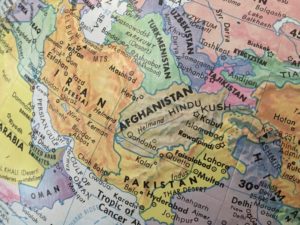Canada’s Afghan Refugee Response Demands Attention
This excerpt from the Toronto Star discusses the government’s response to the Afghan crisis and Canada’s world-renowned Private Sponsorship of Refugees program.

With the Taliban’s recent return to power, Afghanistan’s future looks bleak. Millions of Afghans are in urgent need of help, and Canadians have an important role to play in responding to this deepening crisis. But in the shadow of the pandemic and other issues gripping our attention, we risk doing too little, too late.
Having faced more than 40 years of conflict, natural disasters and poverty, Afghans comprise one of the largest refugee populations globally. Following a sharp increase in internal displacement after the Taliban takeover last year, the UN estimates that up to 97 per cent of Afghanistan’s population may sink below the poverty line, and that up to 500,000 additional Afghans may have fled the country by the end of 2021. Adjacent countries in the region, to which many Afghans have fled, are struggling to meet the needs of their own citizens — and are threatening or already implementing forced repatriation.
What Afghans need now are permanent solutions to their displacement. In September 2021, Canada committed to resettling 40,000 Afghan refugees. Only an estimated 4,000 have arrived. Many of those arriving through this effort will come through Canada’s world-renowned Private Sponsorship of Refugees program, which will help them resettle in communities from coast to coast. Others will arrive through government-led programs, but all will depend on the support of Canadian non-profits and charities, donors, and philanthropic foundations.
Resettlement requires a significant commitment from Canadian residents and organizations, to ensure refugees are set up for success during their first year in Canada — and beyond. Many providing private sponsorship have the experience and connections, but struggle to meet the financial costs. Organizations like Lifeline Afghanistan provide resources to private sponsors, but donors are needed to fill financing gaps, allowing private resettlement actors to focus on supporting newcomer integration. Many refugees depend on support from settlement programs run by charities and non-profits, which themselves rely on donations.